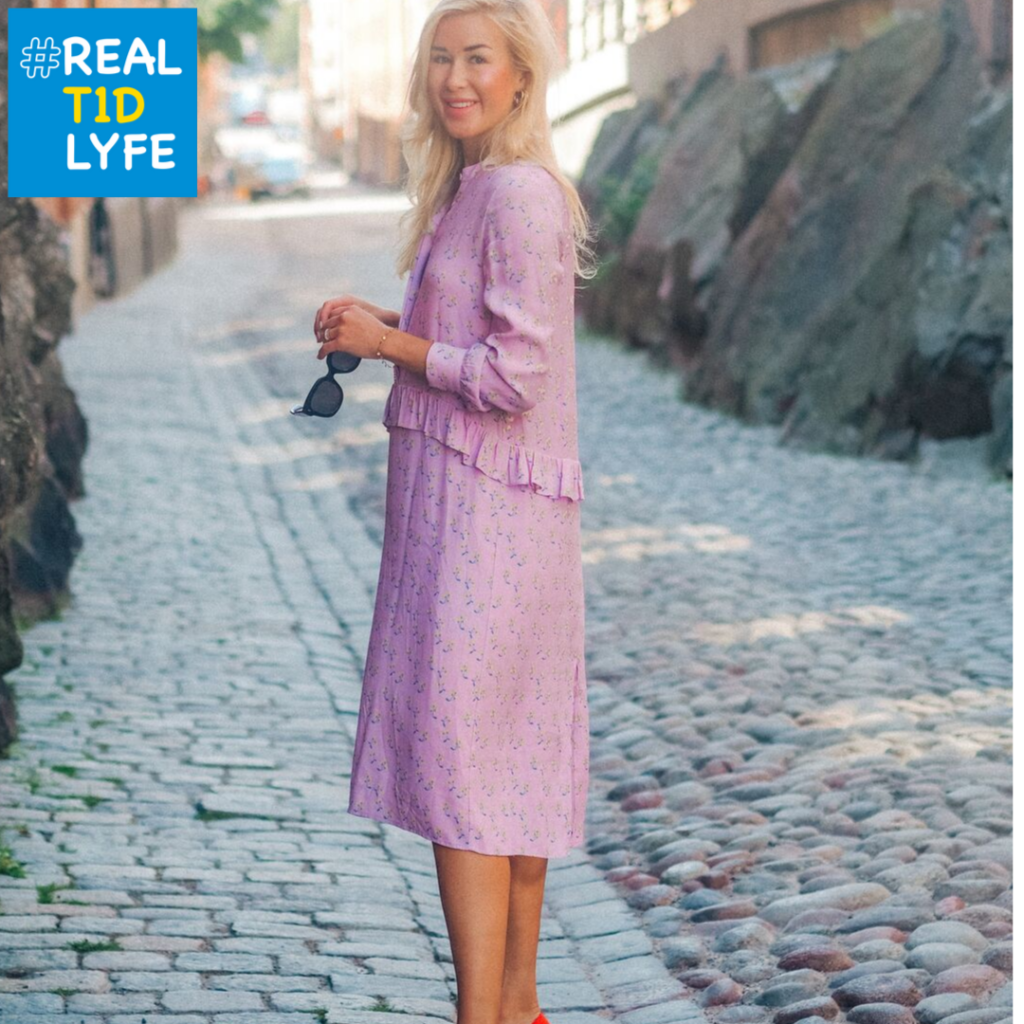#RealT1DLyfe Sara’s Story: Type 1 Diabetes, Food and Eating Disorders
Being diagnosed with Type 1 diabetes is far from the best news I’ve ever received. However, I had the best support from family, friends and healthcare professionals. Thanks to this support system from day one, I felt confident that I could maintain a positive mindset, even though I knew there would be many tough periods ahead.
I have always tried to look and act “perfect” on the outside by not making a fool of myself and not creating unnecessary conflicts so that I would be accepted and respected. All of these behaviors striving for “perfection” have in some way affected the history of my T1D.
For better or worse, I have always placed significant value on my appearance. I have always strived for something that is ultimately superficial and should not really matter in the scheme of things. The combined stress of how I saw myself in the mirror and my perfect blood sugar curves eventually turned into a minor disaster.
![]()
I learned quite quickly when I was diagnosed with T1D how food affected my blood sugar. I learned how many units of insulin I needed to maintain a relatively stable blood sugar. Together, the time and effort I dedicated towards food while I began to think more about how my body looked, as well as other important happenings in my private life, led to an awful disease – anorexia nervosa in 2016. This part of my life was probably the worst. I do not really know where my strength came from, but I eventually managed to contact a clinic that helped me, and this was the beginning of a journey to a healthier life.
I made significant progress once I started working with my body instead of against it. Before, the nutrition of what I was eating was not important to me. The most important thing at that time was for any food I consumed to not affect my blood sugar. Now, I realize how much of an impact my T1D had on the way I considered food and my overall diet.
Receiving a diagnosis of Type 1 diabetes was traumatic because it meant I couldn’t live life as I knew it. It is difficult to change habits and ways of life – even the small, everyday habits. The additional diagnosis of anorexia made this even more difficult. After a long time spent in treatment, I had overcome most of the difficulties I encountered with my disease. I had a tough time when it came to relationships, jobs and figuring out what life meant to me.
Today, I have come a long way in my recovery. However, food is an integral part of my life and I will never be able to get rid of the thoughts of what my next meal will look like. It is a feeling that a person with T1D can never truly get rid of. Some days I feel strong because I do not struggle with my thoughts surrounding food and T1D at all. While other days, I feel the heavy burden of T1D, although I don’t always show it.
If people around us knew the extend of how hard we work to keep our bodies and souls alive, they would be shocked. Although many still do not and most likely will never fully understand, the most important thing is that you are aware of the choices that make you feel good.

